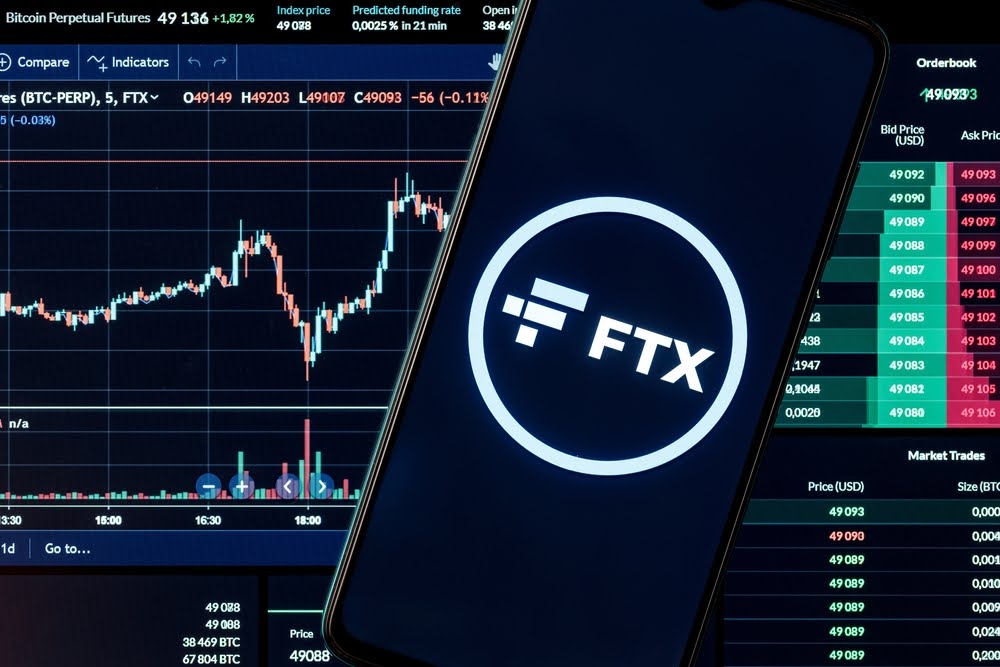With all kinds of events happening in the crypto market, the latest one includes a massive Solana offloading by FTX. This transaction comes after a long period of speculation, bearing in mind the impact it can have on Solana’s price. As much as 20% SOL tokens are held by FTX, and they were able to liquidate around two-thirds at a huge discount, thus making some gains on the way. Meanwhile, a new ICO, InQubeta is challenging Render with a significant investment spike.
Strategic Solana Sale By FTX
FTX’s recent move to sell 30 million SOL tokens at $64 each—a 62% cut from the market value—was a dramatic moment in the cryptocurrency world. This discounted pricing was necessary because these tokens were locked, meaning they weren’t available for immediate trading. The sale generated over $2 billion, a crucial step in FTX’s effort to pay back its myriad creditors as part of its bankruptcy proceedings, with the court having given its go-ahead six months earlier.
There were concerns about how the FTX selling activity may influence the price of Solana, but this was taken care of, by locking up the tokens till January 2028. This strategic move prevents the scenario where sudden oversupply may flood the market. The market’s reaction was surprisingly upbeat. Instead of the anticipated price crash, Solana’s value remained stable, buoyed by strategic purchases from groups like Galaxy Trading. This firm, a subsidiary of Galaxy Digital, had even created a $620 million fund to buy locked SOL tokens from FTX, signaling strong belief in Solana’s future. This calculated optimism amidst a complex situation highlighted the evolving dynamics in the cryptocurrency sector.
InQubeta: A Rising Competitor Amidst Market Shifts
Amid the fluctuating fortunes of the cryptocurrency market, InQubeta is emerging as a compelling new investment frontier. This platform, which positions itself alongside names like Render, is capturing the attention of the crypto community with its fresh take on integrating AI with crypto.
InQubeta is reshaping how we think about investing in AI startups by offering fractional ownership through its QUBE tokens. This innovative approach is breaking down the barriers that typically reserve such investments for the Silicon Valley elite. By using NFTs to represent stakes in these startups, InQubeta not only makes investment opportunities more accessible but also ties investors directly to the success of their choices, blending traditional venture capital benefits with blockchain’s hallmark transparency and efficiency.
QUBE is an ERC20 coin with a deflationary twist that really sets it apart. Every transaction, whether buying or selling, is taxed—2% is sent off to a burn wallet to reduce supply, while another 5% is funneled into a pool for staking rewards, encouraging holders to keep their tokens for the long haul. As new features like the DAO and Swap are rolled out, the utility of QUBE is expected to increase significantly. So far, it’s been a top ICO, pulling in over $13.6 million in funding, and it shows no signs of slowing down.
Conclusion
The FTX fiasco literally gave a huge setback to the entire market, the effect of which can still be felt today. However, the recent sale of Solana did not move the needle, and was surprisingly stable at a given price. On the other hand, the new ICO, InQubeta is breaching multiple milestones, rivaling the likes of Render with its unique AI investment ecosystem. Both these stories show the contrasting nature of the crypto world, where one entity is trying to get out of debt, while another is opening the door for new tech investments.
Disclaimer: The information provided is not trading advice, Bitcoinworld.co.in holds no liability for any investments made based on the information provided on this page. We strongly recommend independent research and/or consultation with a qualified professional before making any investment decisions.




